Changing careers in your 30s or 40s can be a transformative journey, unlocking new opportunities and aligning your work with your evolving passions and life goals. Whether you're seeking better work-life balance, increased fulfilment, or a fresh challenge, it's never too late to pivot professionally. This guide provides UK-based insights and practical steps to help you navigate a successful career change.
Built for returners
Backed by insights
Jump to:
- How to change careers at 35: Embracing new opportunities
- Career change after 40: It’s never too late
- What skills are employers looking for in 2025?
- Best skills to learn for a career change
- Transferable skills for career change
- Best skills for midlife career changers
- What employers look for on a CV
- Steps to restart your career
- Embracing a new career chapter after 35 or 40
- FAQs: Career change after 35 or 40
- Final thoughts: Your career change toolkit
- References and further reading
How to change careers at 35: Embracing new opportunities
At 35, you’re at a prime age to reassess your career trajectory. With a decade or more of work experience, you possess valuable skills that can be transferred to new industries. Many professionals in their mid-30s successfully transition into fields like technology, healthcare, and education. The key is to identify your transferable skills and align them with industries experiencing growth.
Career change after 40: It’s never too late
Embarking on a career change after 40 is increasingly common in the UK. Whether driven by redundancy, burnout, or the desire for more meaningful work, many find that their 40s offer the clarity and confidence needed to pursue new paths. Industries such as digital marketing, project management, and counselling often value the life experience and soft skills that midlife career changers bring to the table.
What skills are employers looking for in 2025?
Employers in the UK are prioritizing a blend of technical and soft skills. According to recent reports, the most sought-after skills include:
- Digital literacy: Proficiency in tools like Microsoft 365, Google Workspace, and basic cybersecurity practices.
- Data analysis: Ability to interpret and present data using platforms like Excel, Tableau, or Power BI.
- Adaptability: Flexibility to navigate changing work environments and technologies.
- Emotional intelligence: Skills in empathy, communication, and interpersonal relationships.
- Critical thinking: Problem-solving abilities and strategic decision-making.
These competencies are increasingly valued across various sectors, reflecting the dynamic nature of the modern workplace.
Best skills to learn for a career change
To enhance your employability during a career transition, consider developing the following skills:
Investing time in online courses, certifications, or workshops can facilitate the acquisition of these skills.
Transferable skills for career change
Your existing skill set is a powerful asset in your career change journey. Key transferable skills include:
- Communication: Effective verbal and written communication is crucial in virtually all professions.
- Leadership: Experience in leading teams or projects demonstrates initiative and responsibility.
- Problem-solving: Ability to identify issues and implement solutions is highly valued.
- Time management: Efficiently managing tasks and deadlines is essential in any role.
- Teamwork: Collaborating well with others indicates strong interpersonal skills.
Highlighting these skills in your CV and interviews can showcase your readiness for new challenges.
Best skills for midlife career changes
Several careers are particularly well-suited for individuals seeking a change in their 40s or beyond:
These paths often provide training opportunities and value the diverse experiences that midlife professionals bring.
What employers look for on a CV
When crafting your CV for a career change, focus on these things.
Remember, tailoring your CV to each application increases your chances of standing out to potential employers.
- Relevant experience: Emphasise roles and responsibilities that align with your desired position.
- Skills section: List both hard and soft skills pertinent to the new role.
- Achievements: Quantify successes with metrics to demonstrate impact.
- Continuous learning: Include recent courses or certifications that show commitment to growth.
Steps to restart your career
Approaching your career change methodically can lead to a successful and satisfying transition.
Embracing a new career chapter after 35 or 40
Starting a new career at 35, 40, or beyond isn’t just possible, it’s increasingly common, especially in a job market that values agility, transferable skills, and lifelong learning. Midlife career changers bring a depth of experience, maturity, and emotional intelligence that younger candidates often haven’t yet developed. In many UK industries (particularly healthcare, education, tech, and consultancy) these qualities are not just welcomed, but actively sought after.
This isn’t about “starting over.” It’s about repositioning your skills, realigning your work with your values, and moving towards a career that fits the life you want now. Whether you’re returning to the workforce after a break, chasing long-deferred passions, or looking for more flexibility and purpose, your mid-30s or 40s can be the perfect time to pivot.
FAQs: Career change after 35 or 40
Built for returners
Backed by insights
Final thoughts: Your career change toolkit

Here’s a quick recap of what you need to succeed:
- 🎯 Self-awareness about what you want and why
- 🛠️ In-demand, transferable skills employers are actively hiring for
- 💬 A network of supportive peers and professionals
- 📚 Access to modern learning tools and certifications
- 💡 Confidence that it’s never too late to begin again
The job market is evolving, and so can you. The best career of your life might still be ahead of you.
References & further reading
To deepen your knowledge and support your career transition, here are some reliable, UK-based resources:
National Career Service – Career change advice, skills assessments, and job market trends
Prospects UK – Sector guides, job profiles, and training info for career changers
FutureLearn – Free online courses to upskill in tech, business, healthcare, and more
Open University – Career Support for Midlife Professionals
Skills Development – Transferable Skills Framework
LinkedIn Learning – Short courses on soft skills, leadership, and digital literacy
Featured Blog Posts








